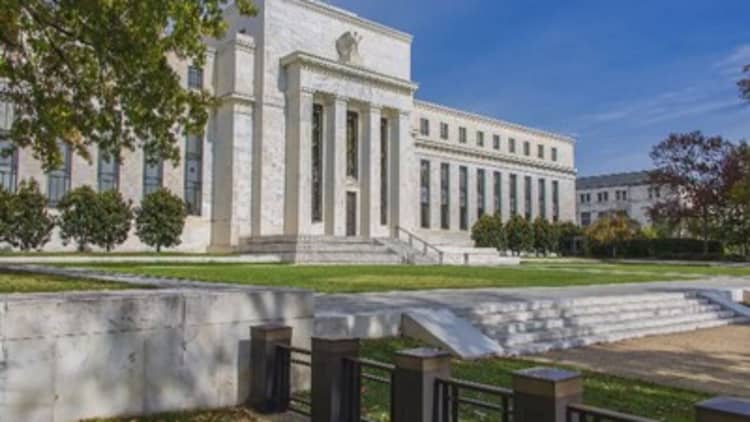
The Federal Reserve raised interest rates Wednesday for the first time since 2006.
Millions of Americans will, of course, be affected with rates going up by a quarter point. If you have a credit card or savings account, invest in a 401(k) plan or in the markets, or want to buy a home or car, now's the time to pay very close attention.
"Given the economic outlook, and recognizing the time it takes for policy actions to affect future economic conditions, the committee decided to raise the target range for the federal funds rate to 0.25 to 0.50 percent," the FOMC's post-meeting statement said. "The stance of monetary policy remains accommodative after this increase, thereby supporting further improvements in labor market conditions and a return to 2 percent inflation."
However, a bigger question on the minds of many people is: Where is the best place to invest my money now that the Fed raised rates?
Carolyn McClanahan, a certified financial planner and founder and director of financial planning at Life Planning Partners, sees opportunities in bonds.
In the short term, the stock market will probably get a boost and bonds may take take a hit. But longer term, rising rates will be bad for stocks; therefore, investors may want to evaluate their portfolios and move out of some equities and invest more in bonds, she said.
For the past seven years, low rates have made bonds relatively unattractive, and the stock market comparatively more attractive. When rates go up, some of that money will tend to flow back into bonds and away from the stock market, so investors need to pay close attention to this, said McClanahan.
If you invest at all in stocks and bonds, even if you just have a 401(k), this Fed rate hike will be important to you and your portfolio. It could trigger volatility in stock and bond markets, which are already on a roller coaster ride. Stocks can continue to gain, but investors may need to be choosy. Stock investors don't necessarily need to fear rising interest rates, but some sectors could fare better than others.
"I've been waiting for the Fed to raise rates for a long time now," she said. "I have a lot of fixed income clients and it has been a challenge to meet their needs. This decision to raise rates helps them a great deal."
Investors with a fixed-income allocation in their portfolio should meet with their financial professional to ensure they understand the effect of rising interest rates on their overall portfolio, she said.
Longer-dated bond holdings could be hurt. Some investors have stretched out to longer duration fixed-income securities in an attempt to lock in a higher yield in the current low-rate environment. Once the Fed begins raising rates, this could affect longer-dated bonds. That means that losers will be investors who bought 30-year, fixed-rate bonds, because those values will go down.
— By Jim Pavia, senior editor at large






